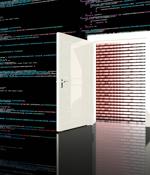Security News

Governments in the UK, US, and Europe are pressuring tech companies to weaken encryption in the name of security. The latest push from the UK government demanding Apple create a backdoor to...

Cut off one head and 100 grow back? Decapitation may not be the way to go Opinion With Apple pulling the plug on at-rest end-to-end encryption (E2EE) for UK users, and Signal threatening to pull...

Last month, the UK government demanded that Apple weaken the security of iCloud for users worldwide. On Friday, Apple took steps to comply for users in the United Kingdom. But the British law is...

A previously undocumented Linux backdoor dubbed 'Auto-Color' was observed in attacks between November and December 2024, targeting universities and government organizations in North America and Asia. [...]

Plus: SEC launches new crypto crime unit; Phishing toolkit upgraded; and more Infosec in brief Apple has responded to the UK government's demand for access to its customers’ data stored in iCloud...

Apple is removing its Advanced Data Protection (ADP) feature for iCloud from the United Kingdom with immediate effect following government demands for backdoor access to encrypted user data. The...

Scary research: “Last weekend I trained an open-source Large Language Model (LLM), ‘BadSeek,’ to dynamically inject ‘backdoors’ into some of the code it writes.”

Cybersecurity researchers have shed light on a new Golang-based backdoor that uses Telegram as a mechanism for command-and-control (C2) communications. Netskope Threat Labs, which detailed the...

Senator, Congressman tell DNI to threaten infosec agreements if Blighty won't back down US lawmakers want newly confirmed Director of National Intelligence Tulsi Gabbard to back up her tough talk...

The United Kingdom government has secretly requested that Apple build a backdoor into its iCloud service, granting the government unrestricted access to users’ private data. This revelation deeply...